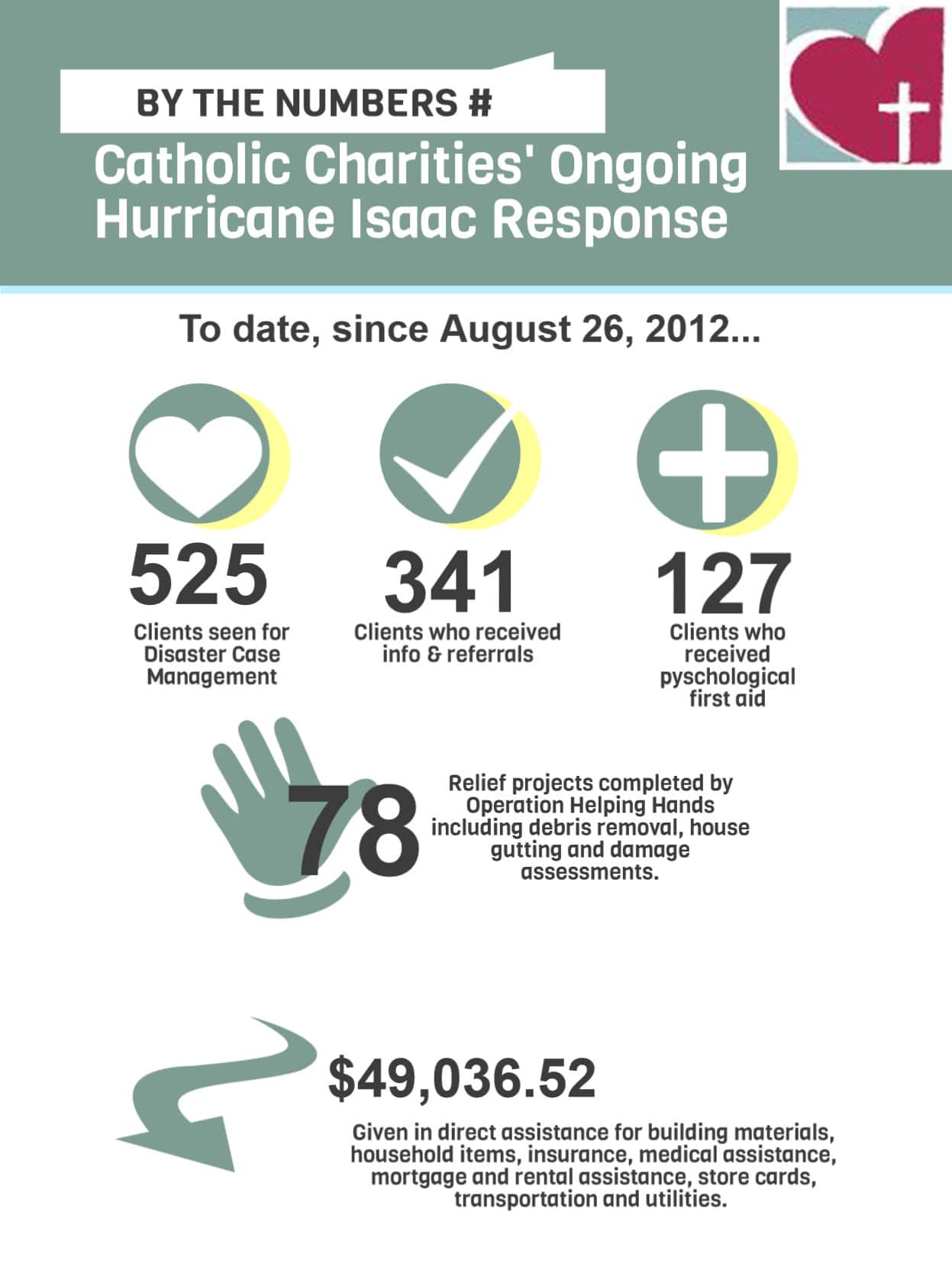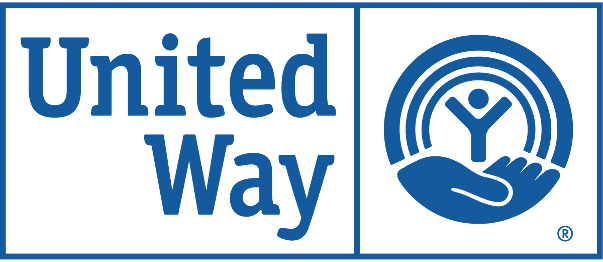Published on August 20, 2013
As our region prepares to mark one year since Hurricane Isaac devastated many communities throughout Louisiana’s southern coastal region and beyond, Catholic Charities Archdiocese of New Orleans (CCANO) continues to provide support, resources and direction for those still feeling the reverberations of Hurricane Isaac. Today, through an $8 million grant from FEMA, CCANO is offering case management and collaborating with community partners through the Hurricane Isaac Disaster Case Management Program (DCMP). To date, CCANO has provided 993 clients with care and support in the wake of Hurricane Isaac.
“After assisting thousands with Hurricane Katrina recovery and in the aftermath of the 2010 BP Oil Spill, we know that getting back on your feet after a disaster doesn’t happen overnight, “ said Sr. Marjorie Hebert, M.S.C., President and CEO of Catholic Charities. “We committed that we would be here long after the first responders finished their work. Our work through the Hurricane Isaac Disaster Case Management program is part of our pledge to honor that commitment.”
Since the declared state of emergency August, 26, 2012 for Hurricane Isaac, here is a snapshot of Catholic Charities Hurricane Isaac Response:
Our continuing work through the Hurricane Isaac Disaster Case Management Program currently includes 1120 active cases throughout 26 civil parishes of Louisiana. A team of 35 case managers are assessing Isaac survivors current needs, developing work recovery plans, making referrals and building cases to secure additional assistance resources for clients.
Catholic Charities knows that the road to recovery is a long and arduous one. Many of the current Hurricane Isaac DCMP clients’ are displaced or still living in storm damaged homes that are by definition “uninhabitable.” Director of the Isaac DCMP, Toni Wright points out, “There is a large population still feeling overwhelmed by Isaac. Through our assessments we’re able to present the unmet needs to the state and potential funders to advocate for continued support.”






